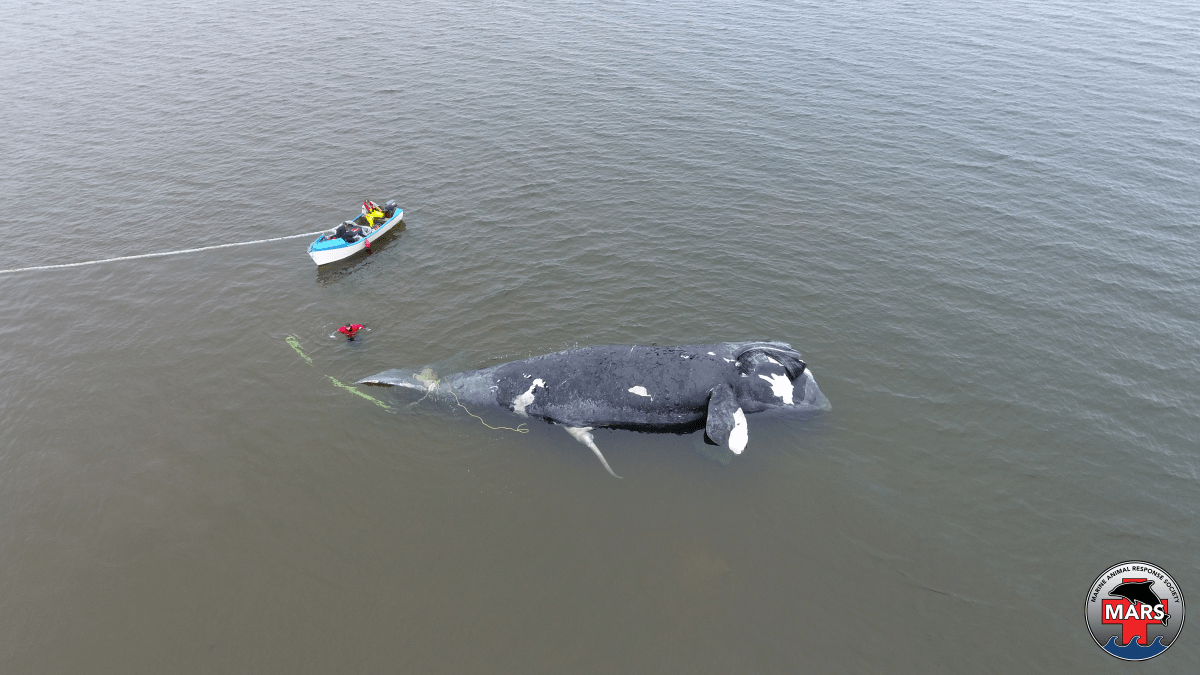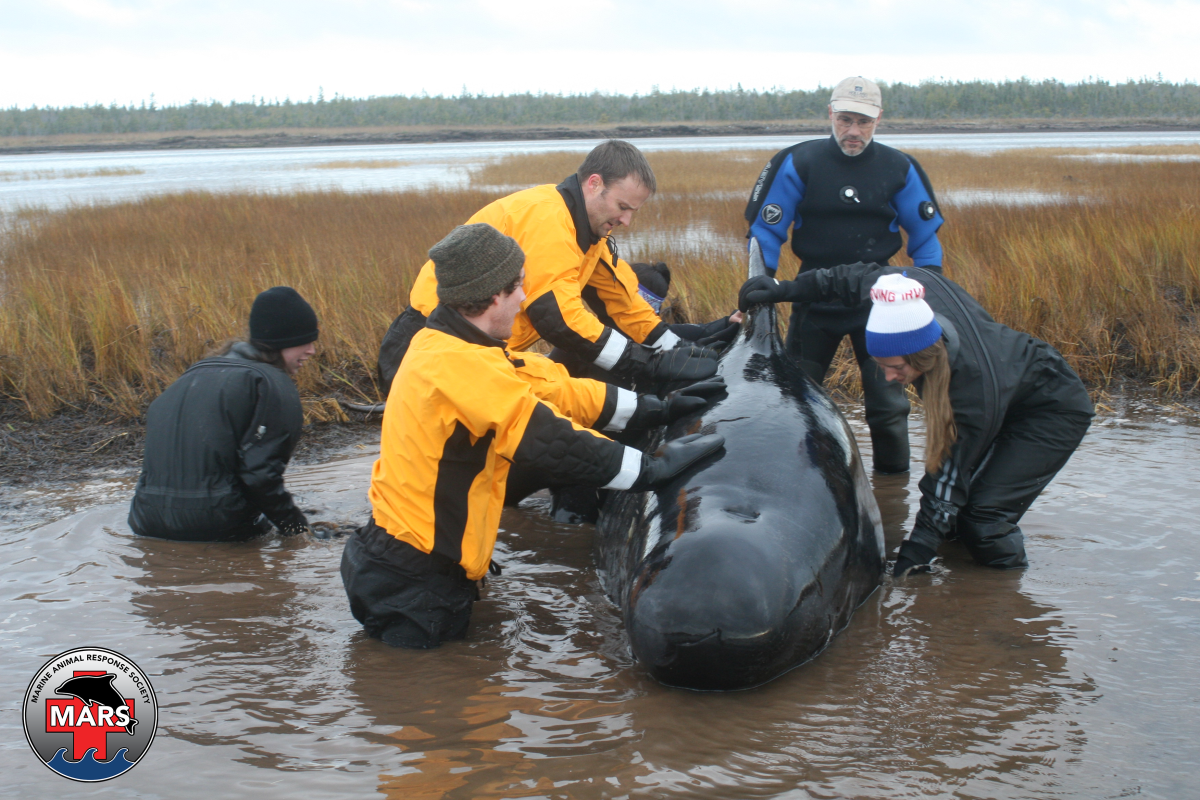Everything starts with a phone call for Halifax’s Marine Animal Response Society (MARS), a charitable organization dedicated to marine animal conservation across the Maritimes.

After getting the call, the organization goes to locate the marine animal in question, such as a disentangled whale or a dead one on shore, in an effort to save them or if the marine animal is dead MARS tries to gather as much information as possible on the cause of its death.
For 20 years, the society, mainly run by volunteers, has been responding to such incidents and advocating for solutions to prevent whale deaths and injuries, like moving shipping lanes or changing fishing practices. But now, for the first time, MARS is asking the public for help.
READ MORE: New measures announced to protect North Atlantic right whales
The society recently launched a crowdfunding campaign on StartSomeGood to raise funds that will help it better respond, research and advocate for solutions aimed at protecting endangered North Atlantic right whales and other marine animals.
Six endangered North Atlantic right whales have been found dead in Canadian waters this year, including Comet, a 33-year-old grandfather, and Punctuation, a 38-year-old breeding grandmother.
According to MARS, several of those six whales died from collisions with vessels, which are considered “a preventable cause” as stated in their crowdfunding campaign page.
Wimmer said as more incidents of dead whales have come up, the organization has received more interest from the public.
“We have a lot more community interest and people wanting to help, which is absolutely wonderful. And we just want to make sure that we can maximize our ability to help and also to learn as much as possible,” she said.
The organization doesn’t have an office, but Wimmer said she hopes to get one once the group has the necessary funds.
“All the funding would obviously go into having the people, having the training, the equipment and the ability to get out the door and go help anywhere in the Maritime provinces where we’re needed,” she said.
“Honestly, that takes a lot of money.”
MARS has around 100 volunteers in total all over the Maritimes, and the organization typically receives 500 to 600 calls from the public a year.
“Not all of the calls need a response, but there are a vast majority that do,” said Wimmer.
“And so it’s just one of those things that the stronger we are and the more information we can learn, the more we will know about the animals and our environment, how we impact them and how we can help them,” she added.
WATCH: Economic impact of North Atlantic right whale deaths

Wimmer said if nobody has the proper data on the cause of a whale’s death, that makes it very tricky to implement rules and legislation aimed at protecting whales.
“If we can monitor why they die, then maybe it will show whenever a flag needs to be raised,” she said.
“And then, of course, when measures are put in place like moving shipping lanes, changing fishing practices, reducing plastic waste into the marine environment, hopefully, what we see is a reduction in deaths to animals from those things.”
According to Wimmer, one of the primary objectives of MARS is to collect data and share it with governments, conservation groups and industry researches who would then help implement new measures or solutions to prevent future deaths.
READ MORE: Sixth right whale found dead likely died from vessel strike
People who wish to become volunteers need to first enrol in MARS’s marine mammal medic training program, which trains people on how to use special pieces of equipment.
One piece of equipment used is a specially designed structure with inflatable pontoons on either side of a stretcher that helps the team lift whales that are very heavy.
“Those pieces of equipment cost quite a bit of money — several thousands of dollars each — and they come from the U.K.,” said Wimmer.
She said a lot of the marine animals live in an environment that isn’t readily visible and that not everyone knows what’s going on.
“People may not know how their activities on land or on the water impact these animals,” Wimmer said, adding that she hopes by sharing more information about whales, dolphins and sharks, people and the government might be more aware of how to best protect marine life.

_848x480_1573116483612.jpg?w=1040&quality=70&strip=all)




Comments